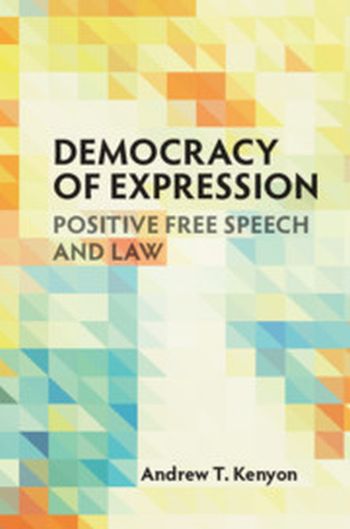
Free speech has positive dimensions of enablement and negative dimensions of non-restraint, both of which require protection for democracy to have substantial communicative legitimacy. In Democracy of Expression, Andrew Kenyon explores this need for sustained plural public speech linked with positive communicative freedom. Drawing on sources from media studies, human rights, political theory, free speech theory and case law, Kenyon shows how positive dimensions of free speech could be imagined and pursued. While recognising that democratic governments face challenges of public communication and free speech that cannot be easily solved, Kenyon argues that understanding the nature of these challenges (including the value of positive free speech) at least makes possible a democracy of expression in which society has a voice, formulates judgments, and makes effective claims of government. In this groundbreaking work, Kenyon not only reframes how we conceptualize free speech, but also provides a roadmap for reform.